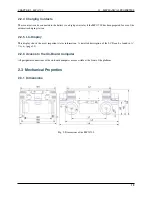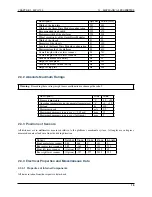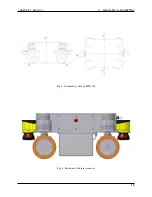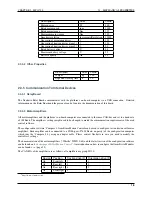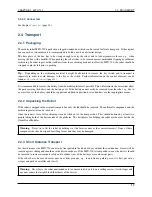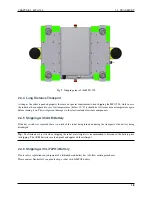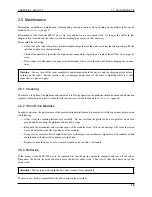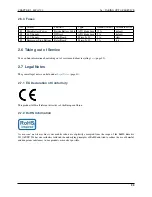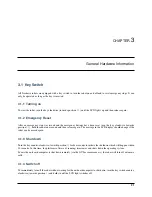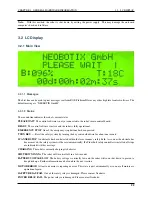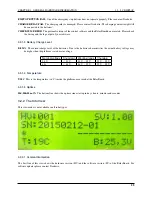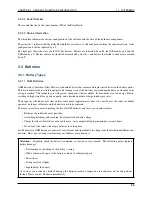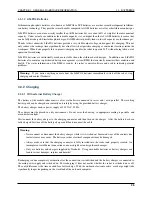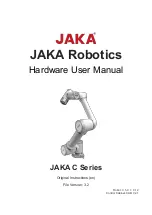
CHAPTER 2. MPO-700
2.1. PRODUCT INFORMATION
2.1 Product Information
2.1.1 Intended Use
The mobile robot has been designed for daily operation in factory workshops and test halls. It can be used for trans-
portation of materials, parts and devices. Furthermore the mobile robot can easily be used in research projects as
mobile carrier of sensor equipment, robot arms and other special devices.
Depending on the intended application the mobile robot can be used on its own, in combination with other robot
vehicles and in combination with stationary systems. Furthermore, application specific extensions can be integrated
into the basic platform. These might be a customised cargo area, a robot arm or special sensors.
The mobile robot has been designed with focus on indoor operation. It is not recommended to operate the mobile
robot outdoors, especially during rain, fog or snow.
2.1.2 Improper Use
Danger:
• The mobile robot must not be used for transportation of passengers in any way. No person must ride on the
robot itself, nor must the robot be used to move any other vehicle or hanger with passengers aboard.
• The mobile robot must not be operated in any publicly accessible area without assessment of risks. If the
robot is to be modified either permanently (e.g. by mounting additional components) or temporarily (e.g. by
loading cargo) its safe operation must be assessed and approved.
• Without the safety approval described above, the mobile robot must at no times be used without supervision
of a qualified operator if there are guests, passers-by or other people unfamiliar with the robot within the
working area.
• The robot must never be operated in areas where there are staircases leading down, elevated platforms or
other possibilities for falling or dropping down. This may cause serious injuries or death!
2.1.3 Working Area
The working area of the mobile robot must be protected against rain and have a sufficiently firm and clean floor. The
floor must be even and horizontal.
Tip:
Slopes, edges, steps and unevenness can result in problems when the robot is moving or with the localisation.
Under some circumstances the robot might not be able to continuously determine its exact position and therefore might
plan unnecessary or problematic paths or might even be unable to reach its destination.
Under certain conditions, rain or heavy splash water might enter the robot and cause damages. Flying sparks, heavy
dust and similar dirt may affect or damage the sensors and thus might make the operation of the mobile robot inefficient
or unsafe. Dirt and liquids on the floor may lead to slippage and problems of localisation and navigation.
The robot does not feature any sensor for detecting staircases, holes or other areas where it may drop down. In case of
loss of localisation or faulty programming the robot might fall down such places.
10

















